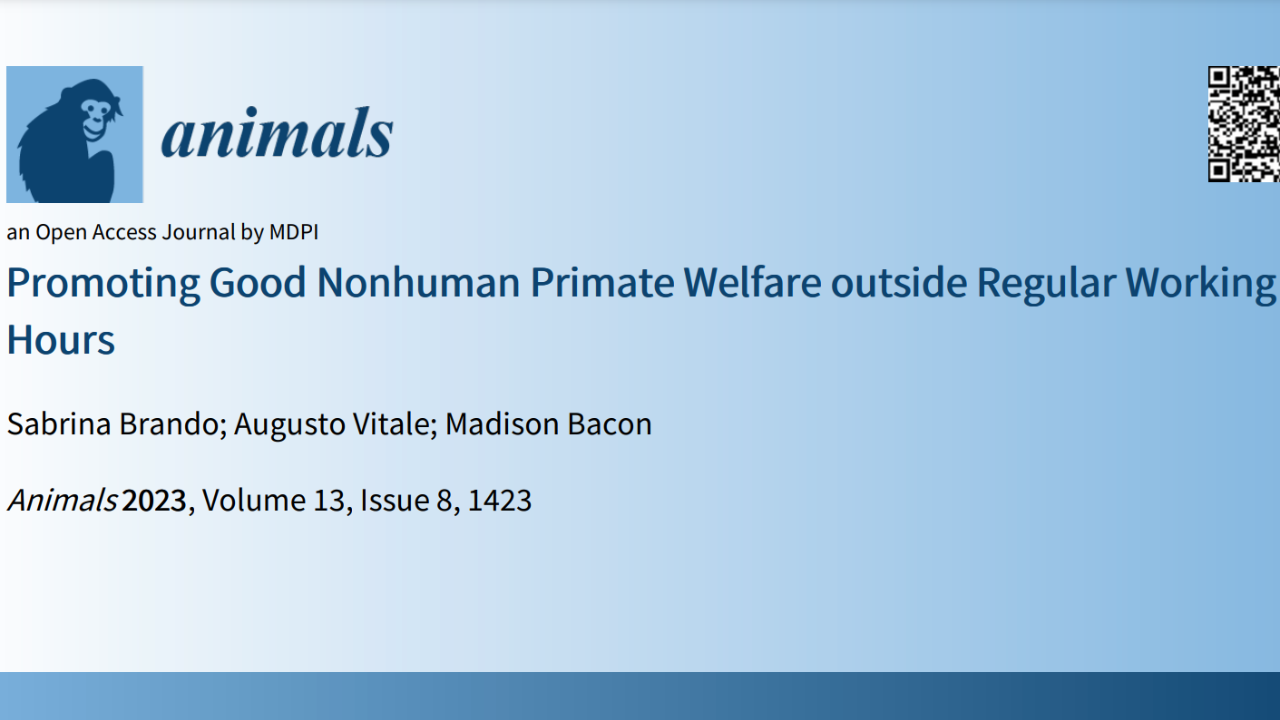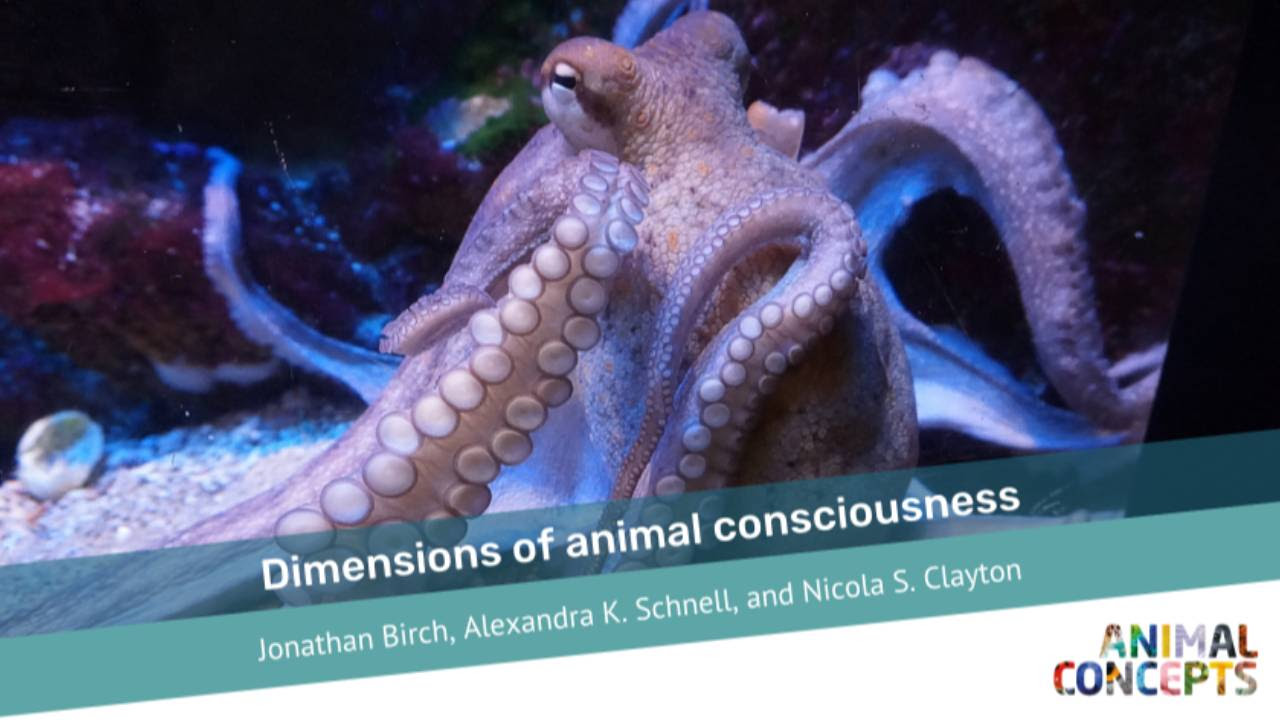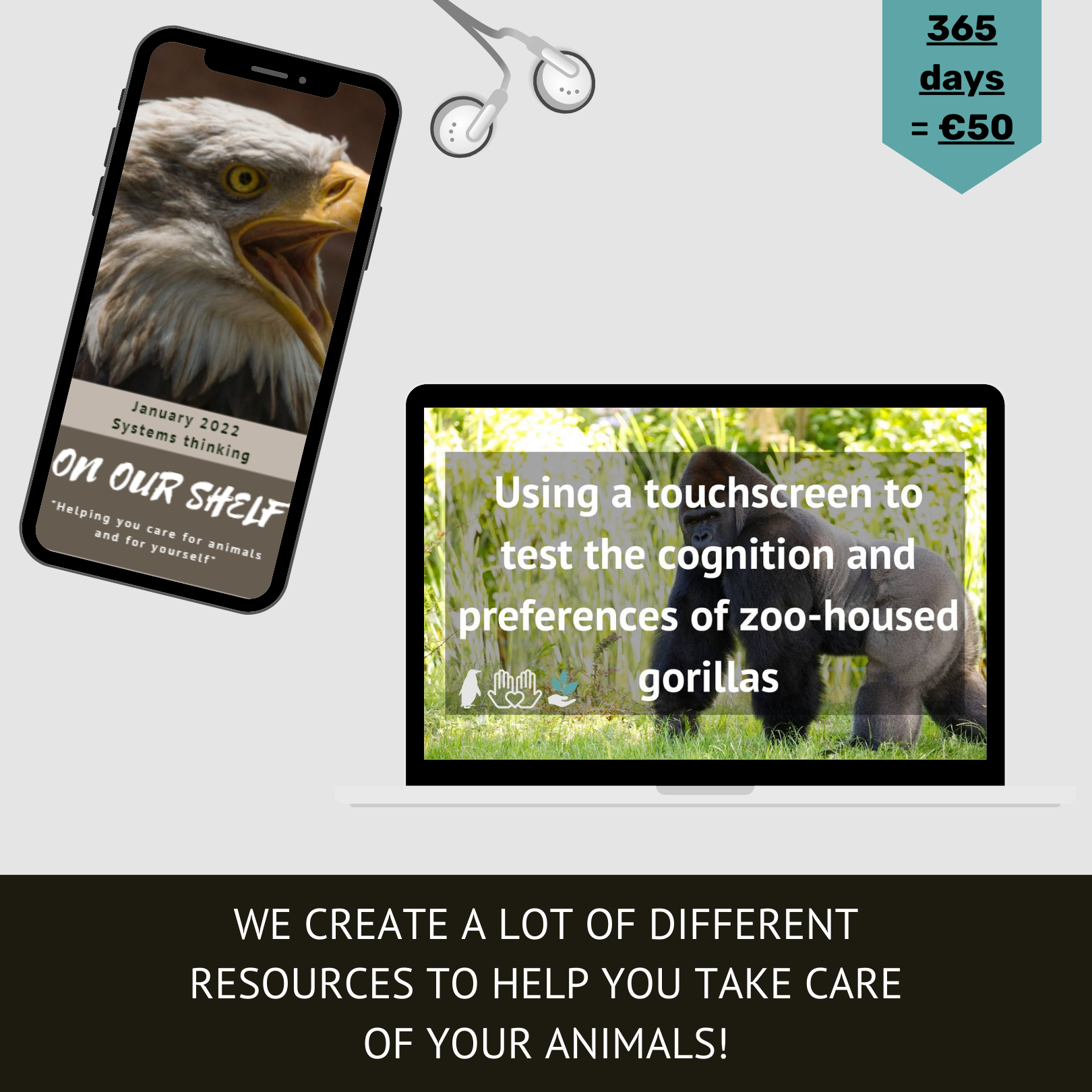New primate wellbeing paper! Compassion for others and for ourselves & SiP #146 Dimensions of animal consciousness

New free-access article published on primate wellbeing
The responsibility to provide a complex environment and environmental enrichment is an essential element of primate wellbeing programs that should be approached from a 24-h perspective and planned according to the species and individual needs. It is necessary to be aware that animals’ care needs may vary over a 24-h period, and the necessary provisions for good welfare at night and out-of-office hours when care staff are not present may not be the same as during the day. The present review presents a case for increased attention to the welfare of non-human primates during night hours when care staff are not on site, including relevant topics concerning the care of animals during these hours and the use of related technologies to both assess and facilitate wellbeing overnight.
You can download the paper free of charge HERE

Compassion for others and for yourself
This month on the human-wellbeing platform our focus is building compassion through empathy and understanding of other people, animals, and the planet, and how compassion is a hope and energy giving system.
Compassion involves recognising and acknowledging the suffering of others, and responding with kindness and caring. Compassion can manifest in many forms, including simple acts of kindness, such as lending a listening ear or offering a helping hand, to more significant acts of generosity, such as volunteering time to support a cause.
Research has shown that compassion has numerous benefits for both the giver(s) and the receiver(s). When we show compassion towards others, we are tapping into a deep wellspring of positive emotions such as kindness, empathy, and love. These emotions can generate a sense of warmth and connection within us, which in turn can increase our energy levels and sense of wellbeing. Furthermore, experiencing compassion can provide us with a sense of purpose, motivation, and energy to help other people, animals in our care, our colleagues, and make a positive impact on the planet. In summary, compassion is a powerful force that can transform our lives and the lives of those around us. By cultivating different types of compassion, we can create a more connected, caring, and compassionate world, one act of kindness at a time.
We often succeed in feeling compassion for other individuals, but we struggle to cultivate compassion for ourselves. Self-compassion is an essential component of our emotional and mental wellbeing, and plays a crucial role in many aspects of our lives. While there are numerous ways to cultivate self-compassion, some will particularly resonate with you at this moment, and others could be worth exploring in the future. Here are some ideas:
Practice mindfulness: mindfulness involves paying attention to the present moment without judgement. When we practice mindfulness, we can become more aware of our thoughts, feelings, and sensations, and learn to observe them with kindness and curiosity.
Challenge your inner critic: learning to challenge a harsh inner critic that judges us and replace negative self-talk with kind and compassionate thoughts can help us cultivate self-compassion.
Treat yourself as you would a friend: ask yourself what you would say to a friend in a similar situation and offer yourself the same kindness and support. We can learn to treat ourselves in the same way.
You can also explore any of these self-compassion guided practices and exercises from self-compassion expert Dr Kristin Neff. What do you want to do for yourself, do differently, compassionately?

INTERBEING
INTERBEING is 4 interconnected platforms & a community, which continues to grow with new content every week! Another Science into Practice is available on the animal wellbeing platform, as well as new foundations, human, and planetary wellbeing content. Want to learn more? Sign up HERE to access, share, and learn anytime, anywhere.


